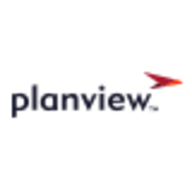

GitLab and Planview AgilePlace compete in the project management and development solutions category. Data comparisons indicate that GitLab has an upper hand in integration and functionality within software development environments, while Planview AgilePlace shows preference for structured agile workflow management.
Features: GitLab offers robust DevOps integration, CI/CD pipelines, and comprehensive version control, making it ideal for software development teams focused on continuous improvement. Planview AgilePlace provides advanced Kanban boards, swimlanes, and scalability, enhancing task visualization and organization for agile teams.
Room for Improvement: GitLab could benefit from simplifying its interface for quicker user adoption, enhancing documentation clarity for advanced features, and improving the visual organization of dashboard elements. Planview AgilePlace might focus on expanding integration capabilities with third-party tools, enhancing the reporting features for more customization, and refining its mobile accessibility for on-the-go project management.
Ease of Deployment and Customer Service: Planview AgilePlace simplifies deployment with its cloud-based model, offering strong support for agile methodologies that aid in onboarding and integration. GitLab, with both cloud and on-premises options, may require more setup configuration, potentially creating a steep learning curve, but offers comprehensive support through an active community.
Pricing and ROI: GitLab's open-source model offers cost-effective solutions with premium features enhancing ROI for DevOps-focused teams, although initial setup costs for premium features may be higher. Planview AgilePlace, while potentially more costly due to its agile-specific features, delivers significant ROI by boosting team productivity and efficiency in agile methodologies.
Migrating to GitLab is bringing time-saving benefits, and everything is easier to automate.
We have saved time significantly, reducing deployment time from four hours to five minutes per deployment.
We have rarely needed to escalate issues to technical support since GitLab usually runs seamlessly.
I have had meetings where they taught me, explained things, and provided guidance for starting from scratch.
I have interacted with architects for some advice during the implementation, and they were prompt in their response.
It has all the features required for our coding and deployment needs, which makes it scalable to our changing requirements.
For scaling, other deployment options from GitLab's side need to be adopted.
We're transitioning to OpenShift for future scalability with increased user numbers.
I have not encountered any performance or stability issues with GitLab so far.
The updates are frequent and demanding, happening at least once a week due to security reasons.
It is essential to conduct proper testing, such as unit tests and code coverage, within the SDLC pipelines.
It would be beneficial to have a user-friendly interface for setting up these configurations, instead of just writing YAML files.
GitLab is a great tool for developers, it lacks project planner features.
The pricing and cost are on par with other tools and are neither too expensive nor cheap.
The price is high, and it limits user accessibility.
Even when working in other small organizations, we opted for GitLab as it was cost-efficient.
It helped me personally and my team to save time and money.
The Ultimate version offers enhanced features for security scanning through DAST and SAST analysis, which have greatly benefitted our project workflow.
By integrating GitLab as a DevOps platform, we have enhanced agility, improved our time to market, and different teams can work collaboratively on various projects.
| Product | Market Share (%) |
|---|---|
| GitLab | 26.3% |
| Planview AgilePlace | 2.0% |
| Other | 71.7% |

| Company Size | Count |
|---|---|
| Small Business | 35 |
| Midsize Enterprise | 9 |
| Large Enterprise | 41 |
| Company Size | Count |
|---|---|
| Small Business | 2 |
| Midsize Enterprise | 3 |
| Large Enterprise | 7 |
GitLab offers a secure and user-friendly platform for CI/CD pipeline management, code repository control, and collaboration, enhancing development speed and efficiency. It facilitates automation with extensive customization and tool integration, ideal for DevOps processes.
GitLab supports source code management, version control, and collaborative development. It's frequently used in CI/CD processes to automate builds and deployments while integrating DevOps practices. GitLab allows companies to manage repositories, automate pipelines, conduct code reviews, and maintain development lifecycles. The platform supports infrastructure and configuration management, enabling efficient code collaboration, deployment automation, and comprehensive repository handling. Many organizations commit and deploy developed code using GitLab's capabilities.
What are GitLab's most valuable features?In specific industries, GitLab serves as a backbone for source code management and CI/CD implementation. Companies leverage its capabilities for infrastructure management and deployment automation, thus streamlining project delivery timelines. Its ability to handle configuration management and code repositories effectively aids in maintaining development lifecycles, making it a preferred choice for organizations committed to enhancing their DevOps practices.
Planview AgilePlace is a cloud-based solution designed to provide businesses with a continuous flow of work to help teams accelerate delivery times by visualizing their work with enterprise Kanban boards and lean metrics. Planview offers project managers the visibility, resource management, and real-time analytics necessary to help their teams reduce bottlenecks and dependencies and work more effectively. By using Kanban boards, teams are able to visually track and manage the flow of their work from the strategy level, through implementation up to end-product delivery.
Planview AgilePlace Benefits
Planview helps teams to smoothly implement their strategies by offering its users the following benefits:
Reviews from Real Users
Planview AgilePlace stands out among its competitors for a number of reasons. Several major ones are its user-friendly management pane, the visibility that it provides for its users, and its agile management capabilities.
A manufacturing manager at a large manufacturing company writes, “Using the tool seems to save time versus trying to do things in a regular manner. It is highly collaborative; everybody can see things in one place. It is a highly functional, but pretty simple tool. That is hard to find: A tool that has a lot of functions, but is also simple.”
We monitor all Enterprise Agile Planning Tools reviews to prevent fraudulent reviews and keep review quality high. We do not post reviews by company employees or direct competitors. We validate each review for authenticity via cross-reference with LinkedIn, and personal follow-up with the reviewer when necessary.